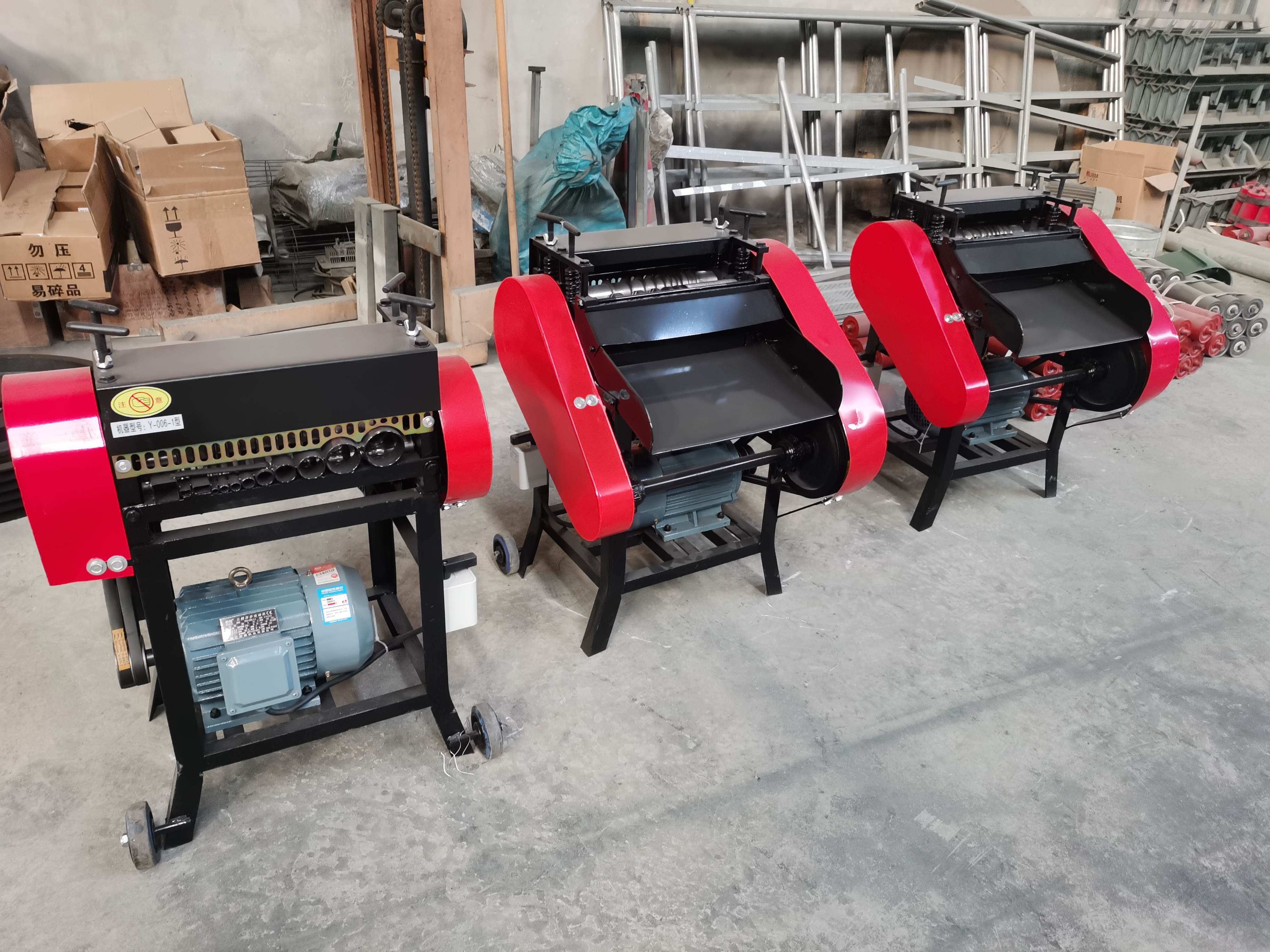

Spa . 31, 2024 20:51 Back to list
The Evolution and Importance of Aluminum Shredders in Recycling
In recent years, the focus on recycling and sustainable practices has gained unprecedented momentum. Among the various materials that can be recycled, aluminum stands out due to its unique properties and versatility. Aluminum is lightweight, strong, and resistant to corrosion, making it a popular choice in industries ranging from automotive to packaging. However, the challenge lies in how to efficiently process and recycle aluminum scrap, and this is where aluminum shredders come into play.
Aluminum shredders are specialized machines designed to break down aluminum products into smaller, manageable pieces for easier recycling. The process begins with the collection of aluminum scrap, which can include everything from beverage cans to broken parts from machinery. Once collected, the scrap is fed into the aluminum shredder, which uses powerful blades and an array of mechanical processes to shred the aluminum into smaller fragments.
The benefits of using aluminum shredders are manifold. First and foremost, they significantly increase the efficiency of recycling operations. Larger pieces of aluminum can be difficult to handle and transport, but shredding reduces their size, making it easier to process them through subsequent recycling stages. This results in a more streamlined workflow and helps to minimize the overall energy consumption of the recycling process.

Moreover, shredding aluminum helps to separate contaminants, such as plastics and other metals, which can be detrimental to the recycling process. Advanced shredders are equipped with sophisticated technology that enables them to sort aluminum by grade and purity, ensuring that the final product meets required standards for reuse.
Another significant advantage of aluminum shredders is their contribution to environmental sustainability. Recycling aluminum saves approximately 95% of the energy required to produce aluminum from raw materials. By using shredders to process aluminum scrap, companies can contribute to lowering carbon emissions and conserving natural resources, such as bauxite, the primary ore for aluminum production.
Furthermore, the end product of shredded aluminum can be remelted and formed into new aluminum products, promoting a circular economy. This process not only reduces the need for new raw materials but also supports local economies by providing jobs in recycling facilities.
In conclusion, aluminum shredders play a crucial role in the recycling ecosystem. They enhance the efficiency of processing aluminum scrap, promote environmental sustainability, and support the circular economy. As the demand for recycled aluminum continues to grow, the importance of advanced shredding technology will undoubtedly rise, paving the way for a more sustainable future.
Latest news
Troubleshooting Common Eddy Separator Problems
NewsJul.04,2025
The Role of Metal Recycling Plants in Circular Economy
NewsJul.04,2025
The Impact of Recycling Line Pickers on Waste Management Costs
NewsJul.04,2025
Safety Features Every Metal Shredder Should Have
NewsJul.04,2025
How Industrial Shredders Improve Waste Management Systems
NewsJul.04,2025
How Cable Granulators Contribute to Sustainable Recycling
NewsJul.04,2025